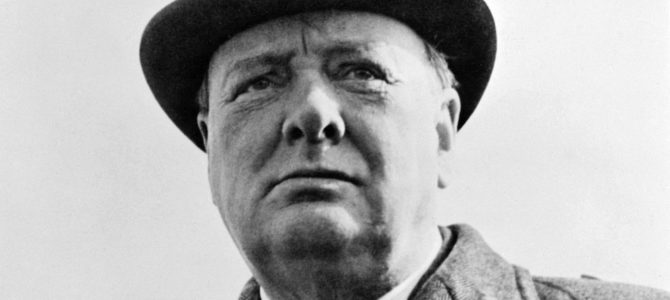
In the fifth lecture of Hillsdale College’s free online Winston Churchill and Statesmanship course (which you can take along with me here), college President Larry Arnn explains how Churchill fought for a free society and free trade.
Churchill opposed preserving Britain’s deeply entrenched aristocracy, and spoke against those who advocated to keep the House of Lords inaccessible to commoners. In a speech delivered in the Victoria Opera House in 1909, Churchill lambasted the notion that aristocracy is comprised of a civilization’s best and brightest, and the idea that the country “needed” high-born people to maintain their place in society.
‘All civilisation has been the work of aristocracies.’ Why, it would be much more true to say the upkeep of the aristocracy has been the hard work of all civilisations.- (Loud cheers and ‘Say it again.’) Nearly all great ideas and the energy by which all the great services by which mankind has been benefited have come from the mass of the people. Take the great agent of civilisation- religion . The religions of the world have come from the people, the religions of the world have come from the poor, and most of all is that true of Christianity. Christianity was preached by poor men, humble men in the smallest employments, and preached to the poor, the outcast, the despised and rejected of those hard times-Christianity which to-day rules the world , and has contributed to civilisation all those precious ideas which keep our modern life clean and healthy.
Churchill helped create Britain’s social safety net because he sought to reduce inequalities baked into its aristocratic society. He wished to end the transfer of wealth from the common people to the lorded class, which had persisted for centuries. He helped tear down the last aristocracy in the House of Lords and vehemently opposed tariffs, which were sometimes imposed on goods, like grain, that benefited the lorded class and hurt the common man. An advocate for free trade, Churchill opposed tariffs throughout most of his life, save for a short period during the Great Depression.
Socialism Makes More Inequality Than Aristocracy Does
The rise of socialism during his time worried Churchill. He thought this political system would perpetuate inequality to a greater degree than aristocracy had. Under socialism, the person at the top of the heap was one who was best connected to the party — the bureaucrat who lived off the efforts of others. This was worse in his mind than the person at the top of the heap being one who inherited his position at birth.
As a result, Churchill felt it was important to maintain a social safety net in order to ensure that no one fell into dire poverty if he became sick or another family tragedy took place. But the kinds of social reforms he advocated gave the people benefiting from them a stake in society and their own well-being. He fought for those living in public housing to be able to purchase their homes so they would become stakeholders in British life and not just inactive beneficiaries from the government. He also thought those who would receive old-age subsidies should have to pay into the system before getting these benefits. In a letter to Neville Chamberlin dated 1925, Churchill wrote the following on these benefits:
I feel increasingly convinced that the uncovenanted man of 65 ought to pay something before receiving a free gift from the State. The man of 65 has paid nothing, has been promised nothing, is expecting nothing; and he is suddenly to be presented with £25 a year, as well as having his wife provided for in the event of his death. I do not believe he would regard it as a hardship to be made to contribute for two or three years before receiving his pension at 65.
Churchill also advocated for national health insurance, although he didn’t specify what exactly that ought to look like. In pushing for these reforms, Churchill hoped to circumvent popular support for socialism and undermine the system of inequality put in place by the aristocracy.
Churchill Loved Federalism
As a devout constitutionalist, Churchill advocated for federalism. He tried to rebuild the House of Lords by allowing elected officials to join this legislative body. Under Churchill’s machinations, the House of Lords and House of Commons operated as a bicameral legislature, to serve the people. Churchill was frustrated by the increasing number of laws and regulations that made the bureaucratic state grow, and pushed for increased transparency in the legislative process to slow this phenomenon down.
Churchill’s contributions to government and trade policies, which made Britain freer and more equal, are often forgotten by history. His reputation as the hero who saved the western world from falling into the hands of an evil empire overshadows his accomplishments as a legislator, but this shouldn’t be so, Arnn argues. A brilliant statesman, Churchill’s legislative accomplishments and political ideas ought to be revered as much as his grit during two massive world wars.









